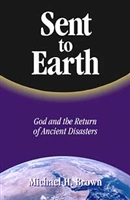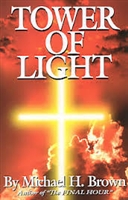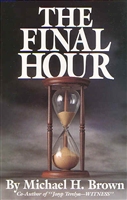Confounding, over the years: how many times one has heard those in the Church who like to claim, from time to time, including from the pulpit, that “prophecy” or to be a “prophet” doesn’t mean anything mystical — that it is not about foretelling future events, but rather simple proclamation of truth and the Gospel.
It does include that (evangelization), but if you’re talking about the essence of the word, it’s in error, according to the U.S. bishops’ own version of the Bible (the New American). This is stated clearly in the very introduction to that Bible’s section called “The Prophetic Books,” which includes a dozen “major” prophets (such as Isaiah) and more than twenty “minor” ones.
Let’s simply quote from it:
“The prophetic books, together with the oral preaching of the prophets, were the result of the institution of prophetism, in which a succession of Israelites chosen by God and appointed to be prophets received communications from Him and transmitted them to the people in His Name (Deuteronomy 18, 15-209),” it starts. “The prophets were spokesmen of God, intermediaries between Him and His people.
“The communications they received from God came through visions, dreams, and ecstasies and were transmitted to the people through sermons, writings, and symbolic actions.”
“The office of prophet was due to a direct call from God,” says the bishops’ exegesis. “The prophets preserved and developed revealed religion (1 Samuel 12, 6-25), denounced idolatry (1 Kings 14, 1-13), defended the moral law (2 Samuel 12, 1-15), gave counsel in political matters (Isaiah 31, 1ff), and often also in matters of private life (1 Samuel 9, 6-9).”
And the importance of miracles?
That too is spelled out.
“At times miracles confirmed their preaching, and their private life, and their prediction of the future intensified the expectation of the Messiah and of His Kingdom,” says the bishops’ Bible.
In our time, in our current Church, however, it is the opposite.
What comes from the pulpit is usually dry discourse and theological text.
That has its place. But can you imagine the effect on attendance if the Holy Spirit were allowed again to breathe in His prophetic exhortations? (People long for that.) And what more prophetic time of the year than Christmas?
Moreover, the explication gives justification to modern prophecies that are often denounced (including from diocesan offices and pulpits) as apocalypticism (when in fact apocalypticism, says the bishops’ exposition, is critical to the Catholic walk!
“They contain exhortations, threats, announcement of punishment, promises of deliverance,” it says of prophecies. “In content, the literary genre of prophecy uses warnings and threat besides exhortation and promise to declare in God’s Name events of the near and distant future (Isaiah 8-9),” it further notes.
The near and distant future events are not in a strict timeline, the introduction further points out, but are “often interrelated, not on years separating the events but on the analogy of the pattern joining present with very distant, though similar, conditions and circumstances. This is prophetic compenetration, idealization in which persons and things of the more immediate present, in the prophet’s day, fade into a wider and more perfect order of persons and things of the future.”
In other words, don’t take prophecy as a schedule — in exact details — but an essence.
And while you’re at it: take what is good and leave the rest; especially, leave behind that which causes disproportionate fear and unusual unease. Christ was a warrior but He also was Prince of Peace. 1 Thessalonians 5 (19-22) says it all: “Do not quench the Spirit; do not despise prophetic utterances. But examine everything carefully; hold fast to that which is good; abstain from every form of evil.” It’s all right there in those succinct words, as so much in the Bible is.
[resources: The Warning, Tower of Light, The Final Confrontation, Sent To Earth, and The Final Hour]






